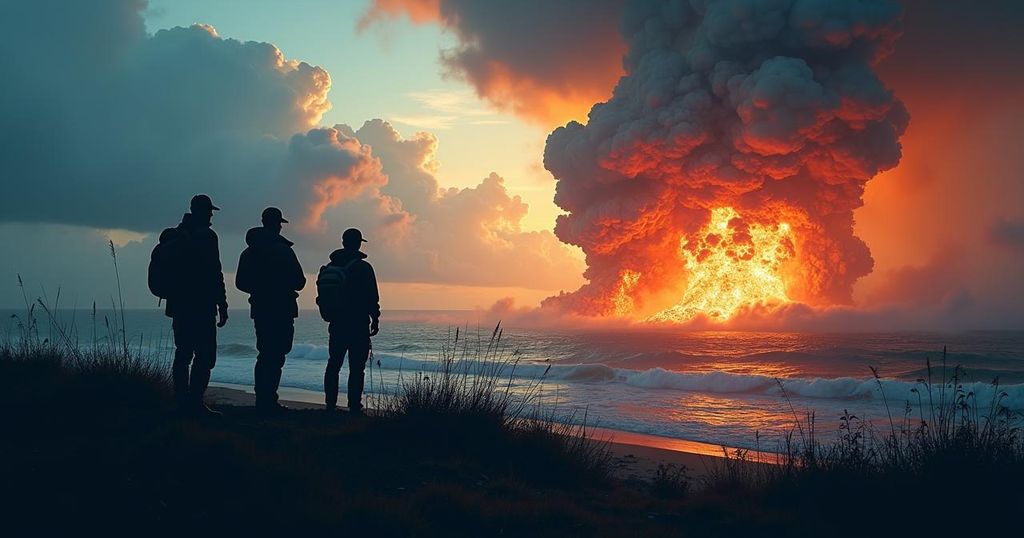The Unfolding Impact of Climate Change on Natural Disasters: Insights from Meteorologists

Meteorologists are witnessing firsthand the severe impacts of climate change, as evidenced by intense storms such as Hurricane Milton and Tropical Storm Helene. As storm frequencies and intensities escalate, experienced meteorologists emphasize the urgency of addressing climate change to mitigate potential disasters. Recent global weather patterns indicate record-breaking natural disasters in 2024, including catastrophic floods and extreme temperatures, necessitating serious public engagement with climate realities.
In recent years, it has become increasingly apparent that climate change and global warming are significant factors contributing to the alarming rise in natural disasters experienced worldwide. This year has seen some of the most severe climate-related events, raising concerns and prompting urgent responses from meteorologists. Meteorologists are currently observing the direct impacts of climate change on weather phenomena, noting a troubling acceleration in the frequency and intensity of storms. This enhanced understanding enables them to proactively predict the severity of upcoming natural disasters, providing critical information to communities at risk. In Florida, mandatory evacuation orders have been implemented as Hurricane Milton rapidly escalated in intensity. The gravity of the situation was poignantly articulated by John Morales, a respected meteorologist in South Florida and a Hurricane Specialist for the National Weather Service. Throughout his extensive career, Mr. Morales has witnessed firsthand the detrimental effects of climate change on weather patterns. Notably, before Tropical Storm Helene even formed, he anticipatorily warned the public about the potential for extraordinary devastation. His forecasts, however, were initially met with skepticism and derision from some segments of the community. During a recent broadcast regarding Hurricane Milton, Mr. Morales became visibly emotional as he reported the storm’s rapid transformation into a Category 5 hurricane. “It has dropped 50 millibars in 10 hours. I apologize. This is just horrific,” expressed Mr. Morales, struggling to contain his feelings during this alarming turn of events. The year 2024 has already been marked by catastrophic natural events, including severe flash floods across the United States, Europe, and Asia, wreaking havoc on landscapes and communities alike. The increasing size and frequency of hurricanes, compounded by rising ocean temperatures, have resulted in substantial devastation that leaves affected regions little opportunity for recovery in between storms. Furthermore, this summer has brought extreme heatwave conditions worldwide, leading to dire situations for agriculture as crops withered and livestock faced starvation. Countries in Europe have reported record-breaking temperatures accompanied by wildfires that ravaged vast forests. In light of these observable trends, it is imperative that the public acknowledges the reality of climate change and its capacity for causing unprecedented weather events. When a seasoned meteorologist articulates the likelihood of an exceptionally severe storm, it is crucial that their warnings are taken seriously, without judgment or dismissal.
Climate change, characterized by long-term alterations in temperature and weather patterns, has been identified as a primary driver of increasing natural disasters. The scientific consensus around the implications of climate change underscores its role in exacerbating weather-related phenomena, thereby endangering lives and infrastructure. Meteorologists play a pivotal role in forecasting these events, leveraging advancements in technology and research to issue predictions that inform and protect communities. Their contributions are particularly critical as the world experiences a surge in both frequency and intensity of storms, raising alarms among climate experts and communities at risk.
In conclusion, the direct experiences of meteorologists, such as John Morales, serve as a stark reminder of the tangible impacts of climate change on extreme weather patterns. As the frequency and ferocity of natural disasters continue to rise, it is vital for the public to embrace the knowledge shared by these professionals. Ignoring the warnings regarding potential catastrophic storms can lead to serious consequences. Thus, collective acknowledgment and action against climate change are necessary for safeguarding lives and communities.
Original Source: www.thetravel.com






